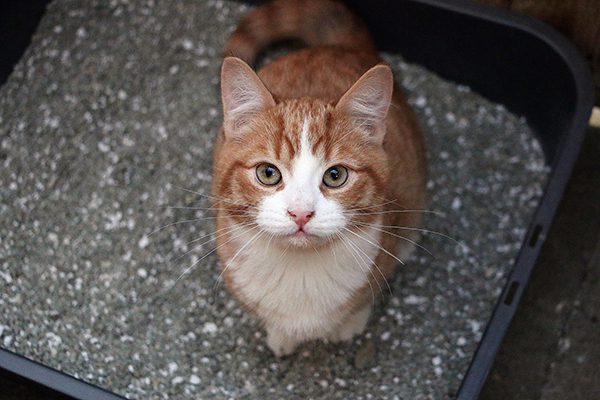Oak Park Pet Owners: Symptoms and Treatments for a Blocked Cat

When a cat has a urinary tract issue, they may experience symptoms ranging from producing healthy urine or pain. When they are in their litterbox struggling to urinate and cry, they ask you for your help.
If your cat is blocked, your vet may need to use a urinary catheter to get the urine out of the bladder. If your cat has been shown to have urinary tract issues, you can put them on a special diet and take measures to make them as stress-free as possible.
The most important thing to know about a blocked cat is that their condition may be life-threatening if you do not seek medical treatment right away. You need to familiarize yourself with your cat’s urinary health and know the signs of something wrong.
Reading this article will help you learn about the symptoms and treatment for a blocked cat.
What Symptoms Do Blocked Cats Have?
Most cats who are suffering from a blocked urethra have very distinct symptoms. It is one of the most recognizable conditions in a cat. Some of these symptoms include:
- Struggling with urination
- Constant small streams of urine
- Blood present in the urine
- Urinating someplace other than the litter box
- Urinary obstruction
- Crying because of discomfort
- Loss of appetite
- Vomiting
- Lethargy
- Spraying urine
- Pain during the process of trying to urinate
These symptoms are very uncomfortable for your cat, and a blocked cat is at risk and may die without treatment. Potassium levels and kidney toxins rise in the blood, and the outcome could be fatal.
What Can You Do for a Blocked Cat?
A blocked cat needs immediate treatment before the symptoms become too dire. Urinary obstructions are an emergency, and your cat will need urinary catheterization. The following explains the standard treatment for a blocked cat:
Urinary Catheter
One of the main concerns when treating a blocked cat is their heart. Urinary blockage can cause severe metabolic imbalances, which need to be stabilized first. The vet will give them certain medications and monitor their heart with an EKG.
The doctor will administer intravenous sedation and fluids before the urinary catheter (see video) is placed into the urethra and the bladder (or placed into the urethra through the penis). The tube goes up inside and drains out the liquid. Fluids are given for dehydration.
This use of a catheter must be done very carefully to avoid damaging the lining of the urethra. Once the block has been removed, the vet will infuse a sterile saline solution into the bladder via the catheter so that he can clean out the blood and debris.
The process is repeated many times until as much debris is washed out as possible, and a new obstruction does not occur. Your vet will determine whether it is best to leave the catheter in or remove it.
If the blockage is severe, your vet may want to leave the catheter in for a few days to safeguard the urethra so that it can do its job transporting the urine. Sometimes after the procedure, painkilling or anti-inflammatory drugs are needed.
How Can I Prevent My Cat from Being Blocked?
When a cat has had a urinary obstruction, there is a chance it may happen again. There are particular things you can do as a pet parent to help them maintain good urinary health.
Nutrition
Nutrition plays a crucial role in preventing blockage. If your cat experiences urinary tract issues, a particular diet may be prescribed for them to help dissolve any crystals or prevent a new blockage.
There are several approved food options that help with urinary health in cats. Some of them are prescription, while the rest you can order online.
High-quality protein helps to maintain the PH balance in the urine. The PH of the urine should be 6.3 to 6.6. Too many carbohydrates increase the acidity in the urine, which can lead to the formation of crystals.
Certain foods, such as nuts, and seeds will put stress on your cat’s pancreas. The pancreas needs to work correctly for the kidneys to filter out waste and toxins through their urine.
Water
Water is another critical component for your cat to have better urinary health. Water cleanses them of debris that is in their system. Cats get a more significant part of their liquid from their wet food, so it is essential to incorporate it into a cat’s diet.
Cats also tend to do better with water fountains, as opposed to water bowls. It is true that when outdoor cats drink water, they like to get it from a source that comes trickling down or is running and not from stagnant pools.
Your cat’s ancestry is still deeply ingrained in them, so they prefer to drink out of a lovely cool running fountain with a good filter, which will provide clean and odor-free drinking water for your cat. Hydration is so essential for them.
Stress
Stress can also cause urinary tract disease in cats. Any changes in routine can trigger stress in your cat. Cats thrive on consistency, so it can upset them when they adjust to a new routine. They may also be in a multi or two-cat household where they feel they need to compete for resources or attention.
If there has been a recent move to another home, this is another cause of stress because they need to learn how to navigate a brand-new environment. If one of your other pets dies and your cat is bonded to them, this could be emotionally taxing.
Another surprising cause of stress in cats is also if they do not get enough play. If your cat does not play or exercise enough, they may become bored, which can be stressful for them. Lack of play and exercise also means they do not get to work off their energy, which can be frustrating and trigger anxiety.
Clean Litterbox
Many cats are fickle and do not like to use dirty litter. Keep your cat’s litterbox as clean as possible. Cats may also be picky about their litter, and a change in brand may not be a good idea for your cat.
If cats do not like the way the litterbox is presented or the actual litter in the box, they may be prompted to urinate outside the litterbox and on your favorite rug.
If You Think Your Cat is Blocked, Contact Your Vet Immediately
If you see your cat straining or crying while in their litterbox and do not produce a healthy stream of urine, your cat may have a urinary obstruction. It is essential to get them to the vet as soon as possible when they have this condition.
Cats can die if they cannot urinate, and they will need immediate medical intervention. As a cat parent, you need to be aware of your cat’s urinary health so they can live a long and happy life being your fur baby.
